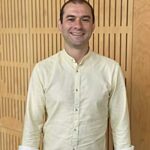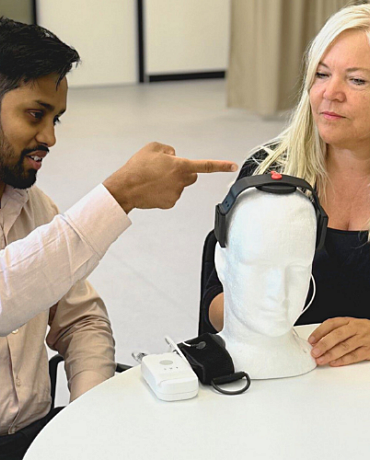Researchers from Neuroscience Research Australia (NeuRA) and UNSW Sydney have been awarded $4.5 million in grants from the Medical Research Future Fund (MRFF) to reduce pain and disability, and increase physical activity, in people with chronic pain.
Professor James McAuley, Senior Principal Research Scientist at NeuRA and Senior Research Fellow at UNSW Medicine and Health, and Dr Matthew Jones, Senior Lecturer, School of Health Sciences, Faculty of Medicine and Health, UNSW Sydney, and Postdoctoral Fellow at NeuRA, will be testing whether a mobile app, and an online education and goal-setting program, can help people with chronic low back and neck pain.
In congratulating NeuRA’s Centre for Pain IMPACT researchers, Interim Chief Executive Officer, Carole Renouf, said this successful grant funding was a testament to their vision and ambition to increase equity of access to health care.
“At NeuRA, our researchers are focused on transforming lives through medical research and the vital work that Prof McAuley and Dr Jones are doing, combined with this funding support from MRFF, will ensure the latest neuroscience knowledge can translate to greater access to high quality health care across Australia,” said Ms Renouf.
Applying new thinking to new health innovations
Prof McAuley, along with Professor Sylvia Gustin, Dr Aidan Cashin and Dr Rodrigo Rizzo, have been awarded a $1.6 million Primary Health Care Digital Innovations grant to test the effectiveness and best-practice implementation of a prescribable mobile app for chronic low back pain in primary care.
“Low back pain is the most prevalent musculoskeletal condition and has been the leading cause of long-term disability globally for 30 years. In Australia, chronic low back pain is very common, disabling and costly,” said Prof McAuley.
“In the NOTUS trial we’re aiming to reduce pain and disability of people with chronic low back pain by empowering them with access to the best possible information and health tools no matter where they live in Australia. We’re also looking to inform the development of future digital interventions for the management of chronic disease.”
Exercising a patient-led approach to increase physical activity and reduce blood pressure
Prof McAuley, Dr Jones and Dr Cashin have been awarded a $1.4 million MRFF Effective Treatments and Therapies grant, to test whether a patient-led intervention comprised of tailored pain education and patient-led goal setting helps adults with chronic low back pain increase physical activity and reduce blood pressure.
“Clinical guidelines recommend exercise as first-line care for adults with chronic low back pain, however pain is often a significant barrier to exercise so those with the condition are 30% less likely to meet physical activity guidelines compared to those without pain,” said Dr Jones.
“This sustained physical inactivity also increases their risk of developing chronic disease. Through the CAPACITY trial, we’re hoping to address the urgent need for a cost-effective, scalable intervention that increases physical activity in adults with chronic low back pain to improve their health.”
If effective, the researchers believe the intervention trialled could be widely implemented to improve health in people with chronic pain.
Reconnecting people with chronic neck pain to new treatments
Prof McAuley and Dr Cashin from NeuRA and UNSW Sydney, in collaboration with Professor Lorimer Moseley from UniSA, have been awarded a $1.5 million MRFF Clinical Trials Activity grant to test the safety, clinical and cost effectiveness of a new treatment for chronic neck pain.
The five-year ReconNECKt trial will compare a new personalised, integrated treatment approach to a carefully designed placebo treatment, to test whether the new treatment is effective for people with chronic neck pain.
“Chronic neck pain exerts a massive health burden and has been identified by clinicians, consumers and industry partners as a major health priority. It is also a complex condition with many potential contributors,” said Dr Cashin.
“Our research collaboration is proud to have been at the forefront of identifying and understanding these contributors and designing interventions that modify them and reduce their impact. We look forward to furthering this through the RecoNECKt trial and are grateful for MRFFs support.”








